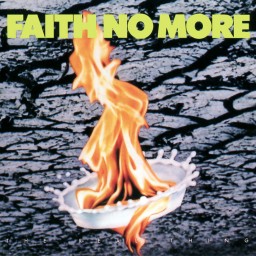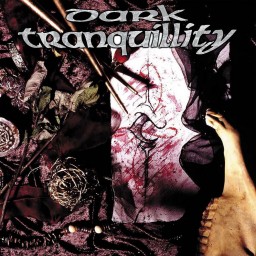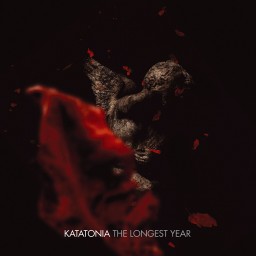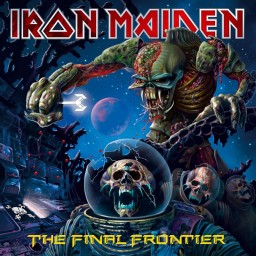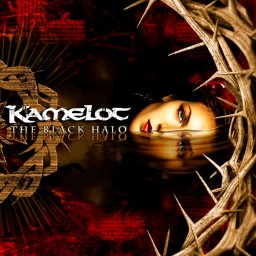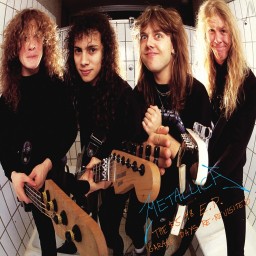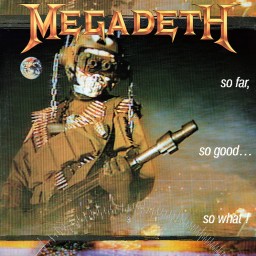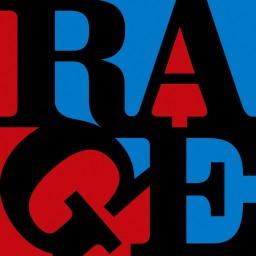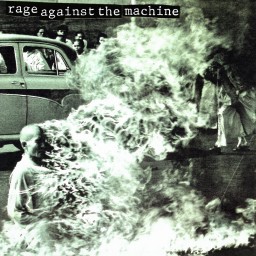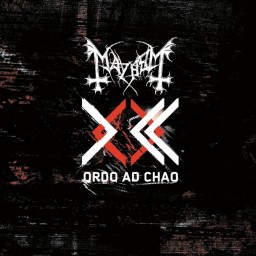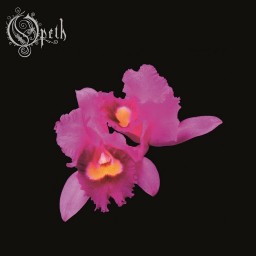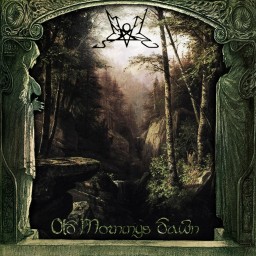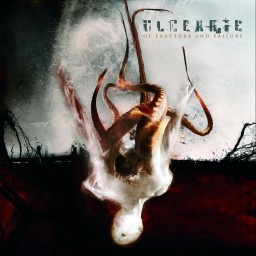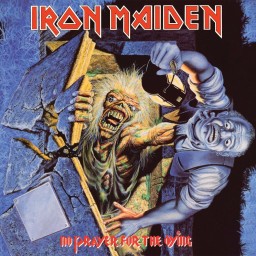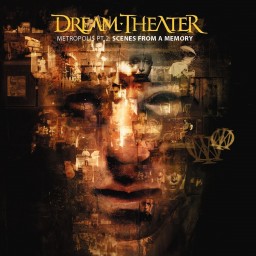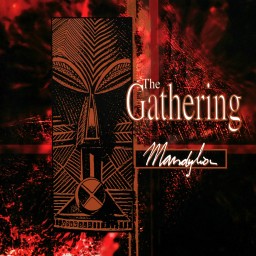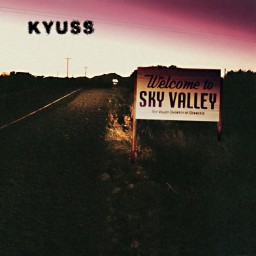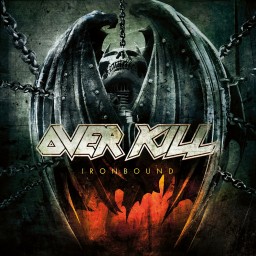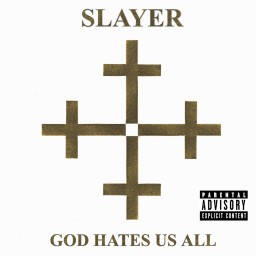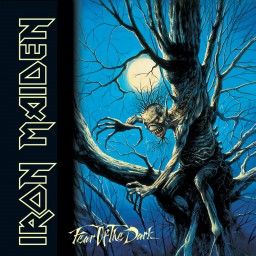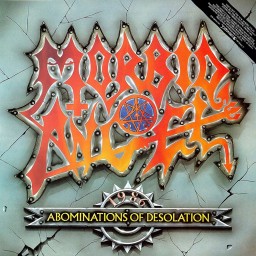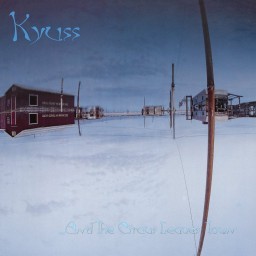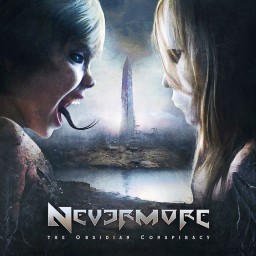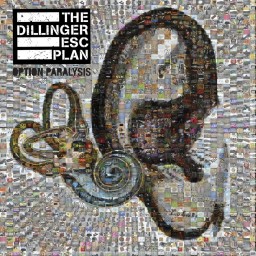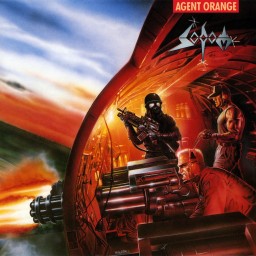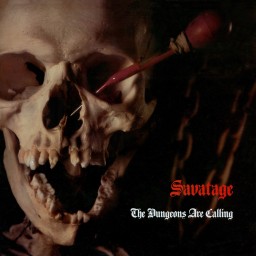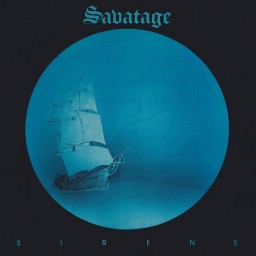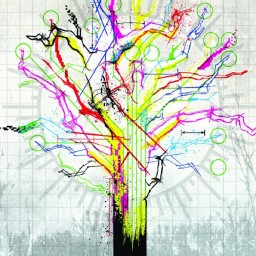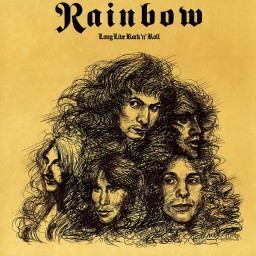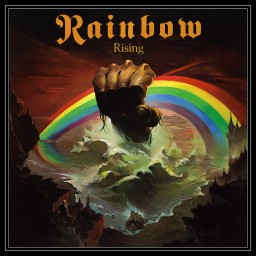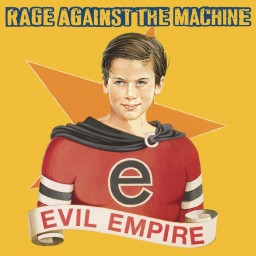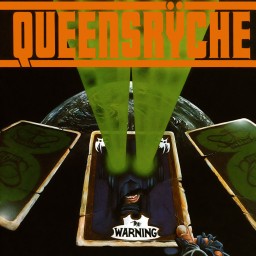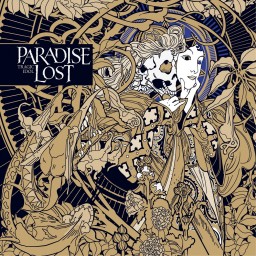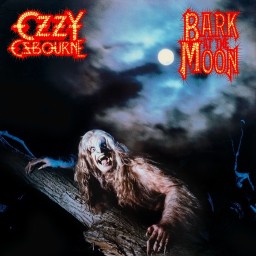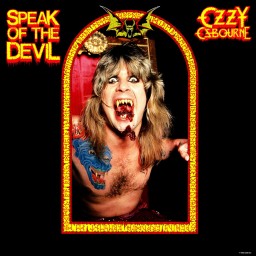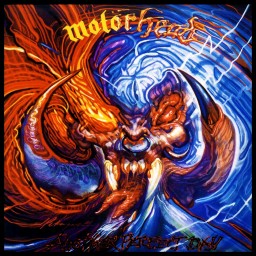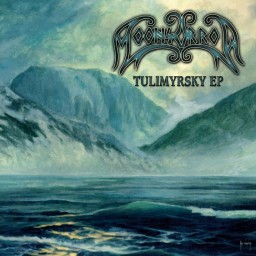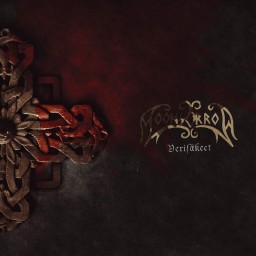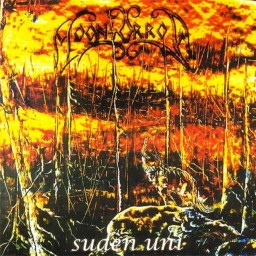Daniel's Reviews
his is such an original & consistently brilliant record. Every musician contributes with amazing performances & the song-writing is simply wonderful. Jim Martin bangs out some of the most epic metal riffs ever. Mike Patton leads from the front beautifully too. It's a real testament to the bands skills that they can present so much variety without ever dipping in quality. "Underwater Love" is probably the only track that I don't absolutely love but it's still a pretty catchy tune. I think "Surprise! You're Dead!" may be one of my all-time favourite tracks. I get tingles up my whole body every time. Possibly my favourite FNM album these days.
Genres: Alternative Metal
Format: Album
Year: 1989
A really promising record that was let down by a thin production. The guitar sound is the main area of concern. The vocals are excellent throughout. There's some really great melodic death metal riffs in the first half in particular. The song-writing is high quality but not as memorable as the previous album. Much like "The Gallery" the later songs are not as strong as the early ones. One feels that a decent production could have opened these songs up a lot more.
Genres: Death Metal
Format: Album
Year: 1997
This is certainly worth a look for fans of Katatonia. The video clips are decent without really providing anything to enhance the music but the music on display here is all very solid. "The Longest Year" is still the clear highlight & I am sure it's vocal themes will continue to penetrate my brain for quite some time yet. But I enjoyed most of the other material here too with the exception of "Idle Blood (Linje 14)" which is a bit lightweight for my taste. The production is excellent as expected. I see these tracks as growers that will gradually dig their hooks into you. Is it just me or does Jonas Renkse sound an aweful lot like Simon Le Bon (Duran Duran) these days? Maybe that's why I like them so much.
Genres: Alternative Metal
Format: EP
Year: 2010
I wasn’t overly excited when I gave Iron Maiden’s 2006 release “A Matter Of Life & Death” its first spin. Three of the previous four albums had been disappointing so I was a little cautious & reluctant to expect too much. Luckily my perseverance paid off & I ended up enjoying “A Matter Of Life & Death” as much as anything the band have released since the 80’s. It certainly had its flaws but there was a consistent quality that kept me interested throughout. The production needed to be stronger to take it to the next level but the song-writing & performances were certainly there. So when I eventually got around to giving “The Final Frontier” its first spin I was hoping to see Maiden build off the solid platform they’d set with the previous album.
Maiden’s track record with production has been very poor since their classic 80’s period but I was happy to hear a better result on this occasion. There’s still room for improvement but the guitars sound fuller which creates a bigger soundscape than recent efforts. The lengthy track durations of “A Matter Of Life & Death” are still evident here with most songs comfortably breaching the 5 minute mark. The album is also very long as a whole. Its 76 minute run time is pushing the limits of the CD technology & can be quite a chore until you gain some familiarity with the songs.
Not a lot has changed from a stylistic point of view. The sound Iron Maiden are championing here is probably not quite as progressive a sound as that of “A Matter Of Life & Death” but there are still plenty of reasonably lengthy instrumental & atmospheric sections. A few of the tracks are very wordy from a vocal point of view. It seems to me that the messages were quite important to the band on this occasion. Bruce Dickinson had made a strong comeback on “A Matter Of Life & Death” after an inconsistent performance on “Dance Of Death” but here there are a few moments that are less than perfect. His high register range seems to be lacking the confidence that it once had. I don’t think it’s a major problem for me as he’s rarely out of key but you can hear him straining to reach those higher notes on occasion when he used to do it so effortlessly. Admittedly Bruce’s lower register seems to be as strong as ever.
The last two Maiden albums have surprisingly included some fairly poor opening tracks. Given that this was an area that the band had always prided themselves on I was hoping for a dramatic improvement here. And boy did I get one! “Satellite 15” is probably the freshest sounding thing Maiden have released in a long time. In fact it’s clearly the best track on the album in my opinion. It features a dark brooding atmosphere that’s high on tension & drama. There is a noticeable futuristic quality to it & it’s a shame the band didn’t explore this sound further. Strangely this track is tacked onto the title track which is clearly a separate & wildly different sounding song. I’m guessing there’s some sort of lyrical link between them but it makes no sense whatsoever from a purely musical point of view. The rest of the album is made up by more traditional sounding Iron Maiden material. “El Dorado”, “Mother Of Mercy”, “Isle Of Avalon”, “Starblind” & “The Talisman” are all very solid metal tunes with those catchy choruses digging their teeth in after a couple of listens. There’s a lot to take in on some of the lengthier tracks but they open up quite a bit with repeat listens. The album unfortunately includes a few weaker tracks too though. “The Alchemist” is a pretty dull song that seems quite simple & sounds a bit dated to my ears. The album really peters out at the end too with the decidedly average “The Man Who Would Be King” & the downright horrible eleven minutes of “When The Wild Wind Blows” closing things out. This is a real shame because there was plenty to like about “The Final Frontier” up until that point.
I was pleased to see that Maiden were able to follow on from the surprisingly good “A Matter Of Life & Death” with a pretty decent record here. I don’t think it’s quite the album that its predecessor was but it’s not far off. I think they’ve just been a little overambitious. A 76 minute album can be a bit of a chore to sit through & I could definitely have done without the last couple of tracks. “When The Wild Wind Blows” certainly taints my overall enjoyment of the album as it’s a very cheesy, badly structured & overly lengthy way to close out proceedings. I think “The Final Frontier” had the potential to sit alongside “Brave New World” & “A Matter Of Life & Death” but as it is I think it sits just slightly behind them in terms of consistent quality.
Genres: Heavy Metal
Format: Album
Year: 2010
I'm generally not much of a fan of power metal but this album has really gotten under my skin. The production & performances are outstanding & vocalist Roy Khan is an amazing talent. "March Of Mephisto", "When The Lights Are Down", "The Haunting (Somewhere In Time)" & "The Black Halo" are all five star belters with loads of hooks that'll have you singing the choruses in your head for days afterwards. There are some cheesier moments but none of the weaker material has a major impact on my overall enjoyment levels as there aren't really any genuine duds here. There seems to be a strong Dream Theater influence in the band's sound & that can't be a bad thing as far as I'm concerned. It's not overly technical though. It's more in the atmosphere & melodic structure. At the end of the day there can be very little doubt that this is a high quality melodic metal record that could possibly be my new favourite power metal album.
For fans of Dream Theater, Avantasia & Sonata Arctica.
Genres: Power Metal
Format: Album
Year: 2005
To be honest I find it a little difficult to provide an unbiased review of this release as it was the very first thrash metal CD I ever purchased & I have quite a strong emotional attachment to it. Regardless, I don't think I'm out of line in feeling that it's an essential part of any Metallica fan's collection. I'm not generally much of a fan of the cover version. They're so rarely executed in a way that offers something fresh & new but also does the original version justice. However I'm very pleased to say that this EP is one of the few exceptions. In fact I'd probably say I enjoy it more than anything Metallica have released since the 80's.
The first two tracks are absolute rippers. Opener "Helpless" is a pretty faithful rendition of Diamond Head's original but done in a more thrashy & exciting style that I actually prefer. It wouldn't be out of place on an album like "Kill 'Em All" to be honest. "Helpless" is followed by a reworking of Holocaust's "The Small Hours" which is the highlight of the EP in my opinion. It has an eerie atmosphere that sounds new to Metallica but also sounds quite natural. The original was only ever released on an obscure live album so this one might as well be Metallica's own. The cover of Killing Joke's "The Wait" wasn't included on some versions of the EP but it was on mine. Lucky for me really as it's a very solid & much more metal version that easily tops the original. I probably prefer Budgie's version of "Crash Course In Brain Surgery" but that's not a huge criticism. Metallica's effort provides a totally different perspective on the original that in retrospect seemed to be crying out for a substantially heavier reworking. Closing track "Last Caress/Green Hell" is a combination of two old Misfits tracks. It's probably the weakest of the five songs included here but I still find it quite enjoyable. I comfortably prefer the "Last Caress" section to the Misfits original but the "Green Hell" section is almost identical to the Misfits song & offers little to improve it.
"The $5.98 E.P.: Garage Days Re-Revisited" may only be an EP of cover versions but it offers substantially more bang for buck than that term implies. It not only offers the listener an interesting & entertaining insight into Metallica's musical roots but it's also a damned fine piece of thrash metal. And there is the beauty of it. None of the original pieces would be regarded as thrash metal in any way yet Metallica have somehow managed to remain faithful to the essence of the originals whilst adding enough of their own sound to make the songs instantly identifiable as their own. A fine effort from a little EP that was only ever intended as a stop-gap between albums.
Genres: Thrash Metal
Format: EP
Year: 1987
I’ve often seen people refer to “So Far, So Good… So What!” as the weakest of the four albums from Megadeth’s classic thrash metal period but I disagree with that statement. Perhaps I have some sentimental attachment to it as it was both my introduction to the band as well as an important album in awakening me to the joys of extreme metal. Regardless it’s been many years since my last revisit so I feel I have a fresh perspective & am in a better position to make judgements on it now.
Let’s get it straight out in the open that (much like Megadeth’s debut album “Killing Is My Business… & Business Is Good!”) the production leaves a bit to be desired. The rhythm guitar sound is quite thin, messy & often washed out by effects while the overall layering of the instrumentation generally sounds like the producer had little idea of how a thrash band should be presented. It certainly doesn’t ruin the record for me but there’s not much doubt that this album would have benefited from a more suitable production job.
Musically “So Far, So Good… So What!” saw Megadeth continue down the path that they’d been so successful with on “Peace Sells… But Who’s Buying?” two years earlier but there’s some further experimentation with more progressive sounds & structures. This was definitely not a band that sounded like everyone else in the scene at the time & it was clear that Dave Mustaine had plenty of ambition with regard to experimentation (especially in the way of song structures). The band had recently replaced their lead guitarist & drummer due to drug problems & to be fair Jeff Young & Chuck Behler did a reasonable job here although I can’t say they are on the same level as the talented Chris Poland & Gar Samuelson. Even though Dave has copped a fair bit of flack for his vocal performances over the years I can honestly say that I really enjoy his efforts on the 80’s records & this one is no different. He sounds genuinely spiteful & aggressive & it really suits both the music & lyrics. As usual the guitar solos are a highlight & show off the bands talent for producing memorable leads that find a nice compromise between melody & technique.
There’s always been something that’s bugged me about Megadeth. Even during their classic period I’ve always found that each album included a couple of tracks that were noticeably weaker than the rest. It’s for that reason that I’ve never awarded a Megadeth album the full five out of five rating & “So Far, So Good… So What!” is a prime example of what I’m talking about. None of the material is awful but a few of the tracks contribute to a lack of consistency. To be fair the cover version of the Sex Pistols’ “Anarchy In The UK” is not a terrible interpretation but it certainly disrupts the flow of the album & sounds very basic in comparison to the far more ambitious original material around it. “Liar” & “502” are also a little flat & lack the sophistication of the bands better songs in my opinion. Luckily those three tracks are all fairly short & the rest of the material included is seriously top notch thrash metal which more than compensates for those inadequacies. Instrumental opener “Into The Lungs Of Hell”, the adventurous “Mary Jane” & epic live favourite “In My Darkest Hour” really show off the class that Megadeth possessed at that time but my personal favourites are “Set The World Afire” & “Hook In Mouth” which best showcase Dave’s aggressive riff mastery & hateful vocal delivery. It says a lot that this stuff still gets me going 26 years later.
All flaws considered I still really get into this record. My feelings are very similar to how I feel about “Killing Is My Business… & Business Is Good!” however there are more highlights on this one. The weaker moments aren’t quite as poor & the production is not as bad either so I definitely favour it over the debut. Having said that it doesn’t come close to matching Megadeth’s best efforts as “Peace Sells… But Who’s Buying?” & “Rust In Peace” are another step up from here.
Genres: Thrash Metal
Format: Album
Year: 1988
1999’s “The Battle Of Los Angeles” album was a good return to form for Rage Against The Machine after their sophomore effort “Evil Empire” had failed to capitalize on the solid groundwork they had set with their impressive self-titled debut earlier that decade. The less ambitious back-to-basics approach worked well & the improved production offered fans a satisfying & well-compiled record filled with plenty of the energetic grooves the band have become renowned for. Strangely I had never actually ventured further than that before now. The fact that this is a covers album would undoubtedly be some of the reason for that as I’ve traditionally never been much of a fan of that particular phenomenon but having recently given the rest of their back catalogue the once over I felt it would be a shame if I didn’t complete the mission.
What becomes immediately apparent about “Renegades” is that it sounds like a Rage Against the Machine album. This is not a band that is suffering from any sort of identity crisis here. They may have decided to tackle other artists material here but they’ve definitely made a conscious decision to do it their way & I find that a much more appealing prospect than mere emulation. The production is very good & the musicianship is excellent as usual. I honestly don’t think there is much that Rage Against the Machine couldn’t pull off as they’re clearly very accomplished musicians & work off each other very well.
During my first listen to "Renegades" I tended find myself feeling the record out a bit but things settled down pretty quickly on the second sitting. The tracklisting is not obvious & I find that an attractive quality in a covers album. Rage Against The Machine start with a couple of hip hop numbers & prove themselves to be quite adept at rearranging them into a rock/metal framework. Volume 10’s “Pistolgrip Pump” is particularly effective & is one of the album highlights. Things start to get more diverse from there. I really enjoy the stripped back version of Devo’s “Beautiful World” as it gives the song a completely new atmosphere. It was interesting to find that I recognized the hit singles “Renegades Of Funk” (Afrika Bambaataa) & “The Ghost Of Tom Joad” (Bruce Springsteen) although I previously had no idea that they were not RATM originals which is quite the feather in the bands cap in my opinion. The real highlight for me comes in the form of closing track “Maggie’s Farm”; a lovely reworking of Bob Dylan’s classic folk rock song from 1965. I’m a fan of the original & was intrigued to hear how they reinterpreted it. Certainly not everything the band tried worked as brilliantly though. The punkier numbers like MC5’s “Kick Out The Jams”, Minor Threat’s “In My Eyes” & The Stooges “Down On The Street” did little for me as the band didn’t do as much to rework them & I’m not much of a punk fan to begin with. The Rolling Stones “Street Fighter Man” didn’t quite gel as nicely as I’d like either but they took an interesting direction with it.
During my first couple of listens I found myself genuinely interested to see what direction the band had taken with each track & was pleasantly surprised on most occasions. As with all covers albums there are some wins & losses here but overall I feel that the wins easily outweigh the losses. They’ve lost none of the bounce & energy that was such a highlight of their best original material & I’d actually go so far as to say that I enjoyed “Renegades” a fair bit more than the disappointing “Evil Empire”. It’s great to hear a band that knows their sound & challenges themselves at the same time. This is definitely worth a few listens for all Rage Against The Machine fans however if you aren’t into their original material then this one probably won’t appeal to you either.
Genres: Alternative Metal
Format: Album
Year: 2000
I first encountered Rage Against The Machine in much the same fashion that most of us did i.e. via commercial radio shortly after the release of the “Killing In The Name” single in 1993. They seemed to be the latest commercial rock sensation & I steered well clear of anything that came too close to being commercially acceptable back in those days. This is a shame because RATM have quite a bit to offer a fan of aggressive cutting edge rock & metal like myself. It wasn’t until a few years ago that I actually gave their debut album a proper listen & I liked what I heard. Terms like “rap metal” can be scary tags at times & in this case I fell into the trap of basing my musical perceptions purely on the genre the band was labelled.
The first half of the album was like visiting an old friend really. I was clearly very familiar with the songs even though I wasn’t necessarily conscious of it. The various singles had been played repeatedly on TV & radio during my late high school years so it was inevitable that I would pick up a lot of the details. The production is nice & heavy so the mosh sections really deliver. Zack de la Rocha’s vocal delivery is very aggressive too. I particularly enjoy the big climaxes where he really gives it everything. His delivery has enough venom to suitably match the spiteful lyrical content. Musically I’m very impressed as well though. Guitarist Tom Morello’s performance has always been highly celebrated but that’s not the element that really drives Rage Against The Machine in my opinion. It’s the super-tight rhythm section. Those guys are right in sync with each other & they're the ones that are primarily responsible for a lot of the heaviness of this record.
“Bombtrack”, “Killing In The Name” & “Bullet In The Head” may be extremely popular radio hits but they’re also very solid rock/metal tunes in their own right. There’s really very little to fault about them. The same can be said for lesser known single “Freedom” with its huge crescendo to close out the album. They’re fine examples of a very well defined, produced & executed plan. Strangely though it’s a lesser known song that pushes things to their ultimate extreme. “Settle For Nothing” is not only the heaviest track on the album but it’s also the most effective in my opinion. Its doomy Black Sabbath-style riff & Zack’s emotion-charged & in-your-face performance really get under my skin & I’m not sure this style of music gets much better than this track. There are a couple of flat moments here too though & they come in the form of “Take The Power Back” & “Know Your Enemy”. They aren’t shockers by any stretch of the imagination but they fail to grab my attention much. It’s not surprising that the heavier songs tend to appeal to my tastes a bit more than the groovier ones though.
“Rage Against The Machine” really surprised me when I first heard it. I wasn’t initially comfortable with the fact that I was enjoying a rap metal outfit but those feelings quickly faded as I realized that the band was not typical of the generic rubbish that the genre is known for. Forget the tags. If you like your music heavy, groove-laden & aggressive with some solid song-writing & very professional performances then “Rage Against The Machine” might just appeal to you.
Genres: Alternative Metal
Format: Album
Year: 1992
I found "Ordo Ad Chao" to be a very frustrating record. On the positive side of things you get the long-awaited return of Attila who brings with him a pure darkness that Maniac was never quite able to match. Plus the band have dropped some of the more technical & progressive aspects of the previous couple of releases in favour of a more stripped back, slower & ultimately far more evil sound. It was clearly the darkest atmosphere Mayhem had produced since "De Mysteriis Dom Sathanas". But then on the other hand (intentionally or not) "Ordo Ad Chao" also sports a truly disastrous old-school production which really does prevent me from fully enjoying what was potentially a landmark release for the genre. You can certainly hear the quality of the music but it's all dragged down by the lack of any brightness & definition in the mix. That issue alone ensures that I'm more likely to put on the previous few Mayhem releases before this one which is disappointing as I can hear so much promise in it. If nothing else "Ordo Ad Chao" hints that Mayhem may still have some epic releases in them yet.
Genres: Black Metal
Format: Album
Year: 2007
I first experienced Opeth in late 1995 when my younger brother brought home the “Orchid” CD. I think I’d heard a track on a compilation earlier on but that was the first time I sat down & gave them a good listen. My brother quickly became obsessed with this record but I was somewhat more tentative. It certainly didn’t sound like anything else that was being released at the time. It intrigued me & commanded a certain level of respect however I wasn’t sure I was able to turn that into the sort of passion that others were showing for this band.
“Orchid” is an incredibly ambitious concept for a debut album. And in many ways I feel it was perhaps a bit too much of a stretch for them at this early stage in their career. It takes more than technical ability to write the sort of 10+ minute progressive epics the band had in mind & although they really nailed some elements of their idea I think they also had a lot to learn about composition. The basis of their sound seemed to be quite clearly drawn from the melodic death metal sound that was steadily gaining momentum in Sweden at the time. There is a constant focus on melody throughout the album & many of the riffs are quite complex in a way that reminds me of early Dark Tranquility. However unlike much of the melodeath scene Opeth tended to keep things at mid-tempo with the occasional slower doomy section. This more controlled approach to tempo heavily contributed to the overall atmosphere of the music although I have to admit that it also sounds a little safe to me at times.
Along with their obvious passion for extreme metal Opeth were already well & truly displaying their love of progressive rock & folk music. The folk elements are very well written & performed for such a young band & I find them to be one of the most enjoyable aspects of “Orchid”. The progressive rock influence is notable for the sheer scope of composition. The five proper songs here all reach or exceed the ten minute mark & making that work proved to be the major obstacle for the band in my opinion. While Opeth appeared to possess a seemingly unlimited quantity of high quality riffs, movements & melodic ideas their ability to put those all together into some sort of workable song structure is questionable. In fact there is really very little repetition or structure to any of the material here. It sounds a lot like the band went through their riff tapes & joined as many good ideas together as possible without really having much idea of how to make them work as songs. They would undoubtedly improve in this area over the next couple of albums but it does tend to make “Orchid” a bit of a jerky experience at times. In my opinion there is easily enough high quality material to have put together a truly great album but it required a less ambitious approach to the song-writing with more repetition & structure. There is a healthy consistency to the material though with every track featuring some great sections offset by some less impressive parts & some jerky transitions. “Under The Weeping Moon” is the track that has always stood out to me as it features some breath-taking moments but there aren’t any weak tracks here. I probably find the three minute piano track “Silhouette” to be the least appealing.
The production is suitable although the drum sound is a bit dry. Instrumentally there are some very good things going on. The acoustic sections are impeccably performed & the rhythm guitar & bass performances are always interesting as well as being quite accomplished. I find the drumming to be a bit simple in comparison to later works & I would have liked to hear a bit more flash in that department but it isn’t a major problem. Mikael’s death vocals are very effective throughout although his clean vocals need a bit of work at this stage. Probably the main element that I find a bit lacking though is the guitar solos. They’re significantly less accomplished than later works & lack authority.
Overall “Orchid” is a good start from a band that would go on to bigger & better things. Some of the elements of what makes Opeth great were already firmly in place while others were still in the developmental stages but the talent was plainly obvious. I find it a pretty enjoyable listen but think it’s probably the weakest of their metal albums.
Genres: Progressive Metal
Format: Album
Year: 1995
I originally dismissed Summoning as an artist that simply wasn't for me back in the 1990's & haven't given them another chance since but after seeing the positive response to this record I thought it might be time to give them another try.
My first impression of "Old Mornings Dawn" is that it doesn't sound like your average symphonic black metal band. They use the drum programming as a differentiator in that they don't simply try to mimic a drummer. They use it more like an electronic musician would which opens up a world of potential. Unfortunately these drum sounds are quite out-dated. I had a cheap drum machine in the late 1990's that sounded better than these in my opinion. I also have a background in the techno scene so I find the programming to be pretty simple & primitive in comparison.
I quite enjoy the vocals & some of the riffs. Each song has some catchy hooks too so I can see why people find Summoning endearing however I have a real aversion to cheesy melodies & there are plenty of those to counteract my overall enjoyment of the album. As with the drums, the synth sounds seem pretty cheap & out-dated to me. The medieval feel of these horn & pan flute lines leaves me cringing a lot of the time. Each time I start to get emotionally engaged one of these melodies will arrive to put me off again.
Overall this is a frustrating album for me. I can see it's a good example of it's type & I enjoy the fact that it doesn't sound like everyone else. There are some elements that I really like about almost every song however I can never really get comfortable with it due to the medieval cheese factor. I honestly think that I have a problem with Summoning on a conceptual level as much as anything. If I'm honest with myself I really don't want my black metal to sound like this. I like a much darker & more tense style & I can't really relate to the atmosphere Summoning work with a lot of the time.
Genres: Black Metal
Format: Album
Year: 2013
This is certainly the weakest of Ulcerate's five albums however it's still got a bit to offer. They'd yet to fully incorporate the dissonant post-metal influence that makes up such a big part of their sound these days & here you'll find them following a more traditional tech/brutal death metal blueprint instead. There's definitely no shortage of complexity. Jamie's drumming is a highlight as usual & the production is pretty decent. There are some very good moments but also some where they get too big for their boots & things start to sound pretty messy. The stop/start nature of the song structures & the heavy emphasis on technicality makes the album lack a bit in the memorability department. It's generally faster than subsequent releases but doesn't quite match them for atmosphere. Worth a listen but not essential.
Genres: Death Metal
Format: Album
Year: 2007
I can distinctly remember the first time I heard Iron Maiden. It was 1988 & I was a 12 year-old kid on holidays with my parents in Bali. My younger brother & I picked up some bootleg cassettes of “Live After Death”, “Somewhere In Time” & “Seventh Son Of A Seventh Son” after having heard about the band through school mates & being intrigued by the cover art. The energy & excitement of the music captured us very quickly & Maiden immediately became a huge part of our lives. By the end of that year I had discovered the even more intense sounds of extreme metal but my love of Iron Maiden transcended genre & I would continue to follow their progress for a number of years afterwards.
Maiden’s first new release since my conversion was 1990’s “No Prayer For The Dying”. That year again saw my family travel to Bali for a holiday & once more I picked up the album on bootleg cassette. Initial listens left me feeling satisfied but not as enthusiastic as I had been for the rest of Iron Maiden’s discography which I was well & truly familiar with by that stage. The more epic & progressive feel of the last couple of albums had been dropped & the band seemed to have gone back to their roots somewhat. The overall sound was weighted more towards their first couple of NWOBHM albums with shorter track lengths & some simpler rockier songs. You can also notice that Bruce tries a more aggressive approach to his vocals at times which I personally don’t mind but overall his performance is not quite up to the high standard of previous albums. At the time I think I preferred Maiden’s more progressive sound but I kept an open mind & repeat listens found me getting a fair bit enjoyment out of “No Prayer For The Dying”.
The first half of the album is actually very good. They open with my personal favourite “Tailgunner” which sounds to me to be a clear sequel to “Powerslave”s “Aces High”. It’s got that classic Maiden gallop with Steve Harris’ charging bass lines & an anthemic chorus that acts as a call to arms of sorts. This is followed by a catchy little number by the name of “Holy Smoke” which was an obviously more simple track that seems to have been intentionally tailored for commercial success. (In fact it eventually went to number one on the UK charts.) Thankfully it’s actually quite a memorable song with some very effective hooks. The heavier & more driving tracks like “Public Enema Number One” & “Fates Warning” tend to appeal to me more though. They both present all the elements of classic Iron Maiden. The title track is very effective too & it’s as close as the band come to the more epic atmosphere of recent times.
Unfortunately the second half of the album shows a dramatic decline in quality. “Run Silent Run Deep” is the first track that I find to be a bit flat but things descend further after that. “Bring Your Daughter… To The Slaughter” & “Hooks In You” follow a similar path to “Holy Smoke” in that they are both fairly simple & possess an obviously rockier edge. Whereas “Holy Smoke” has an addictive quality that allowed me to see past its more commercial direction these two come across as quite cheesy & lack the depth of the band’s legacy. The final track “Mother Russia” appears to be an attempt to create the sort of epic closer the band had become renowned for but it just doesn’t work for me at all. It sounds very forced & brings the album to an unimpressive end.
Listening back now I do quite like “No Prayer For The Dying”. It’s obviously extremely top heavy & the more radio friendly tracks tend to be hit & miss. But in saying that I feel that it’s certainly underrated. It’s not nearly as bad as many people make it out to be. There’s a lot of quality to be found in the first six tracks & it’s unfortunate that level of quality couldn’t be sustained for the rest of the album.
Genres: Heavy Metal
Format: Album
Year: 1990
I was a very big Dream Theater fan when this album was released back in 1999. Albums like "Images & Words" & "Awake" had made a big impact on me in the early 1990s & after being a bit underwhelmed by 1997s "Falling Into Infinity" I was ready for something really special. And I got it to an extent although it has taken many years for me to truly realise it.
I always considered this album to be a step down from the elite Dream Theater albums for some reason. I think a lot of that has to do with my feelings on concept albums. I've never been a fan of them. I always find that they contain filler tracks whose primary reason for existing is to make the storyline flow nicely. Personally the storylines have never mattered that much to me so I resented having to sit through the filler. And on first impressions "Metropolis Pt. 2" seems like it includes a bit of that filler. Particularly at the back end of the album. But once you give it time you find that those tracks start to make more sense & grab you musically. Listening back to them now I actually really like most of them. I think I also needed to give the album some distance from the earlier DT albums in order to be able to judge it on its own right instead of comparing it all the time. Once I was able to forget my expectations & really listen to what's going on with this album I found that there was some very catchy song-writing mixed with a tonne of complexity which is just what you want from a Dream Theater album. Sure it has it's cheesier moments (as there are on all Dream Theater albums) but "Metropolis Pt. 2" seems to have aged very well in comparison to the older albums.
John Petrucci is in amazing form here. He's probably my favourite lead guitarist & I generally find that each album has one truly mind-blowing guitar solo & the solo section on "Fatal Tragedy" fits the bill beautifully. He & Mike Portnoy must've put in a staggering amount of work producing this record. The result is an amazingly professional package that deserves to sit alongside "Images & Words" & "Awake" as the bands essential releases in my opinion.
Genres: Progressive Metal
Format: Album
Year: 1999
It’s been quite a while since I last listened to The Gathering’s “Mandylion” but it still serves its purpose nicely. Admittedly I think it sounds a little dated at times which probably comes down to the simplicity of some of the instrumentation but Anneke’s voice never gets old. I don’t think she soars quite as much as I remember her doing on the follow-up album “Nighttime Birds” so the highlights are not quite as spectacular but she certainly carries the band through the slightly flatter moments on this record before really taking off on the last couple of tracks. It’s a very consistent release with no weak tracks. The first half generally receives most of the praise but I think my favourite songs are the last three (the heavily Dead Can Dance influenced title track, the epic “Sand and Mercury” & beautiful closer “In Motion #2”). It’s here that I find the tingles appearing up my spine thanks to Anneke’s stunning performance. The best moments from an instrumental point of view are generally those where there’s a bit more complexity as the more basic sections are where The Gathering start to flatten out a little. It’s the type of album that sneaks up on you though & I find myself wanting to give it repeat listens as it’s really very pleasant on the ears which is a nice change for a metal album. I was pretty close to going for the extra half mark here but I think 4/5 is a fairer assessment of the quality on offer.
For fans of The 3rd & the Mortal, Theatre Of Tragedy & Tiamat.
Genres: Gothic Metal
Format: Album
Year: 1995
Kyuss’ second album “Blues For The Red Sun” had brought the band to my attention in a big way. The weaknesses that had plagued their debut album “Wretch” were all but gone & what we were left with was a far more focused & professional sounding record. The levels of production, musicianship & song-writing had all been noticeably improved upon & the incorporation of some additional psychedelic influences had added another layer of complexity for the listener. I was lucky enough to witness Kyuss putting in a superb performance whilst supporting Metallica in 1993; a set that included sneak previews of a couple of tracks that would eventually end up on “Welcome To Sky Valley” (namely “Odyssey” & “Gardenia”). It would be a wait of more than a year before the album would finally become available to the public but I was very keen to see what it had in store for me.
Whereas “Blues For The Red Sun” had sounded noticeably different to Kyuss’ previous couple of releases, “Welcome To Sky Valley” followed a fairly similar musical path to its older brother. All of the elements that captured me previously were there but somehow they seemed even more engaging this time. I’m not sure if there is more psychedelic material on this occasion but I think the trippier moments are perhaps more confident & expansive. Josh Homme’s guitar playing has again improved remarkably & he attempts some substantially more challenging ideas on this record. It may be the first time that he has sounded completely in control of his instrument to my ears. John Garcia’s vocals are as gripping & vital as ever. He is certainly helped by some really high quality song-writing though as there are plenty of hooks & highlights to draw the listener in.
Strangely the album is arranged into three suites with each featuring three or four seemingly unrelated songs. I really have no idea as to why they structured things this way & I have to admit that I find it a bit annoying. I’d much prefer to be able to skip from song to song whenever I wished rather than having to fast forward or sit through multiple tracks first. Obviously this isn’t a major concern but it’s worth noting nonetheless.
The first two suites are nothing short of stunning. This is stoner rock of the very highest quality. Unlike Kyuss’ previous releases I don’t find myself missing John Garcia’s vocals during the long instrumental sections. The band has finally found the ability to fully engage me on their own & it makes for a more enjoyable listening experience. The third suite starts off just as brilliantly as the first two but things start to flatten out a little in the middle before building up to another epic monster of a track at the end. “Demon Cleaner” is my favourite track on the album. It simply hits me the hardest. Having said that though I genuinely love tracks like “Gardenia”, “Asteroid”, “Space Cadet”, “Odyssey” & “Whitewater”. “N.O.” is really the only failure in my opinion. It’s not horrible but it is significantly less exciting than the rest of the album (or anything on “Blues For The Red Sun” for that matter). Unfortunately Kyuss have again included a completely pointless joke track at the end of the album. “Lick Doo” serves no purpose whatsoever other than to take some of the gloss off an otherwise very good album. It’s only a minute in length but I’d be lying if I said it didn’t leave me with a slightly bad taste in my mouth at the completion of the record.
“Welcome To Sky Valley” is for the most part a brilliant piece of work. It’s not as big a step up from the previous album as “Blues For The Red Sun” was from “Wretch” or “Wretch” was from “Sons Of Kyuss” but it definitely takes everything I liked about “Blues For The Red Sun” & pushes it even further. Its highlights are more impressive & there are more of them so I’d really like to score this release a little higher than I have. Unfortunately the couple of weaker songs have forced me to drop it back to a very respectable 4/5 but most of this album is as good an example of the stoner rock genre as I’ve heard.
Genres: Non-Metal
Format: Album
Year: 1994
Fist-pumping old-school thrash metal which is well structured & performed but which is ultimately not very memorable. The songwriting is clearly missing the X factor that would make this a memorable release. There's nothing wrong with Ironbound. It's just that we've heard it all before and done much better (ie Horrorscope). The production & guitar solos are definite highlights. I'm not really sure what they were trying to achieve with the intro to "The Goal Is Your Soul" which is totally out of time with the track that fades in underneath it & makes me cringe every time.
Genres: Thrash Metal
Format: Album
Year: 2010
Given my disappointment with Slayer’s previous outing I wasn’t exactly holding my breath in anticipation when it came to 2001’s “God Hates Us All”. 1998’s “Diabolus In Musica” was a strange release that seemed to indicate that the band had little idea of what direction to take at that point in their careers. They’d clearly decided that it was time for a change but had then only half-committed to it which had resulted in an unconvincing effort that wasn’t helped by an inadequate production job. There were certainly some promising elements but these were cancelled out by some very ordinary ones. So if Slayer were to get back on track then they would have to do it with confidence & an erected middle finger pointed squarely at their detractors.
I’ll be perfectly honest & say that (although I don’t subscribe to the thought that artists hold any obligation to their fan base around staying true to their musical roots) I was generally horrified by the nu-metal moments on “Diabolus In Musica”. It was an indication that even the great Slayer could be tempted by the lure of popularity & wealth. The motive behind their newly-detuned guitar sound was also a concern & I was left with a number of questions. Would they return to their pure thrash metal roots or would they continue further in the nu-metal direction they had hinted at? If so, would they fully commit to it & make a better fist of it this time? Interestingly the answers to these questions didn’t end up being as straight forward as I thought they might be.
Firstly, whether you like the end result or not it’s hard to deny that “God Hates Us All” has a much more defined concept & purpose than its predecessor. There’s none of the genre-jumping & inconsistency that plagued “Diabolus In Musica” & the band seemed to have a much better understanding of what they were trying to achieve. All the songs are working towards a common goal & that goal seems to be to blow your head off with aggression & hate. This is one angry record! Sure they’ve made angry records before but they’ve generally had more variety & progression than this one. There are none of the more brooding & atmospheric tracks that we’ve grown accustomed to hearing since the late 1980’s. The production really accentuates the crushing heaviness of the music but it also causes a lot of the record to sound a little samey.
Style-wise this is a very different Slayer to the one I grew up with too. The continued use of detuned guitars is noteworthy but there isn’t much in the way of the nu-metal rubbish that plagued “Diabolus In Musica”. It may pop up every so often but there aren’t any songs that are primarily driven by that sound. That’s not to say that we have a return to the classic Slayer thrash metal sound that we all know & love either though. Their trademark thrash sound has been fused with a combination of ultra-aggressive hardcore punk & some very obviously Machine Head-influenced groove metal. I’m not much of a fan of either of those sounds so my first listen was a bit of a struggle but as I grew more familiar with the material it started to dawn on me that while it may not be the Slayer I know so well it’s still a bloody intense & professionally put together metal record.
The album opens with a weird & fairly pedestrian intro track called “Darkness Of Christ” which doesn’t really work & is probably the weakest moment on the record however that lull is promptly F’d in the A when the massive “Disciple” kicks in. It’s comfortably my album highlight & it pretty much leads into pure carnage all the way after that. This makes it difficult to pick out individual tracks as there is a pretty consistent feel across the record but “Exile” is another standout. There are certainly some weaker moments (like “New Faith” & “Here Comes The Pain” for instance) but the ultra-heavy production does tend to carry them to an extent. I also feel that the flatter tracks generally coincide with the more obvious Machine Head-isms. In all honesty there is stuff on this record that sounds disturbingly like that band & although it’s very well done I find it a bit hard to accept that the great Slayer has stooped to mere emulation of a popular style &/or artist. Having said that it’s also difficult to deny the enthusiasm that the band shows across the board. Tom Araya screams like a madman throughout & although he’s pretty effective there are definitely some tracks that could have been improved by a different approach. It’s interesting that the trademark guitar solos have taken a back seat & are not the mandatory requirement that they have been across Slayer’s entire career. I’m not sure how I feel about that really.
At the end of the day “God Hates Us All” is a very solid & professional metal release that ticks many boxes with me. Unfortunately I can’t deny that the more groove metal heavy sound does put me off a bit & I’d also like a bit more variety of feel & atmosphere but the overall anger & heaviness appeals to me quite a bit. It’s certainly an underrated album that deserves a little more appreciation than it gets.
Genres: Thrash Metal
Format: Album
Year: 2001
After an incredibly unblemished run throughout the entirety of the 1980’s Iron Maiden opened the 90’s with their underrated “No Prayer For The Dying” album. While it certainly had its moments it didn’t compare favourably with the bands triumphant back catalogue. It was an inconsistent effort that featured almost as many disappointments as it did highlights but luckily it was saved by the high quality of the first half of the album. I have to admit that even though I recognized its obvious faults I also found a fair bit of enjoyment in it so 1992’s “Fear Of The Dark” release interested me quite a bit. I was hoping for an album that was free of the sort of simple commercially driven pop metal songs that popped up in the second half of its predecessor & concentrated on the more serious & epic material with which Iron Maiden had made their name.
The album opens with the a pretty decent triple play in “Be Quick Or Be Dead”, “From Here To Eternity” & “Afraid To Shoot Stranger” but things really start to get going in the middle section with “Childhood’s End” & “Wasting Love” being the album highlights in my opinion. These songs possess all of the epic atmosphere that you expect from classic Maiden without being short-changed in the heaviness department. Strangely there’s a drastic dip in quality from that point with only the brilliant title track offering any real meat. As on “No Prayer For The Dying” the weaker songs tend to be the more simple & rocky sounding tracks that are focused in a more commercial direction than I would like to hear on an Iron Maiden record. The four track sequence from “Chains Of Misery” to “Weekend Warrior” is a prime example of this. Even though the choruses undoubtedly possess some decent hooks these songs simply lack a bit of integrity & it makes for a disjointed listening experience where my pleasure factor is jumping from opposite ends of the scale. There are also some moments that sound a bit rushed & pieced together (see “The Fugitive”). They don’t quite flow as well as I’d like. Luckily the best material is good enough to carry the weaker stuff & at the conclusion of the epic title track I’m left with a mildly positive feeling even though I’m not quite convinced.
Unfortunately “Fear Of The Dark” is a very similar story to “No Prayer For The Dying”. There are some genuinely great tracks but as a whole it’s far from essential. I don’t think the production does the songs too many favours with the relatively thin guitar sound being overpowered by Steve Harris’ bass much of the time but that’s not really the issue here. It’s more a question of quality control. It seems to me like a missed opportunity as Iron Maiden clearly still had the talent to write the sort of classic material that their fanbase craved but they seemed to lack the direction & focus necessary to produce it consistently. Contrary to popular opinion I probably prefer the previous album slightly over this one but there’s not much in it. If you combined the best tracks from both albums you’d have a brilliant record. As they stand they’re both enjoyable but inessential parts of the Iron Maiden back catalogue.
Genres: Heavy Metal
Format: Album
Year: 1992
I’ve always had a lot of time for this release. It’s really pretty amazing to think that it was recorded way back in 1986. They were clearly already ahead of their peers & I’m left thinking this would have been regarded as a classic release had it been released back then. But at the same time I’m glad it wasn't released because it would have taken away from the greatness of the band's subsequent releases. Trey’s lead & rhythm guitar styles are already so developed at this stage. He really did create a fresh & original take on the death metal riff. The drumming is a little primitive in comparison to Pete Sandoval’s advanced skills so that’s the most obvious weak point. You actually can’t hear the kick drum much at all. The production is obviously pretty raw but it's not off-putting. Browning’s vocals do the job well enough but they don’t quite compete with Dave Vincent’s performances in my opinion. All things considered I find heaps to enjoy here though. The lyrics & song-titles vary from the final versions quite a bit & when combined with the two hilariously over-the-top intro tracks the album seems to possess an identity all of its own. These songs have been a big part of my life & I find these rawer versions to have an endearing quality that makes them a nice alternative to the classic versions. I consider this a must for Morbid Angel fans.
Genres: Death Metal
Format: Album
Year: 1991
Kyuss were really on a roll in the early to mid 90’s. 1992’s “Blues For The Red Sun” & 1994’s “Welcome To Sky Valley” saw the band going from strength to strength. They’d finally found their sound & were consistently producing stoner rock anthems of the highest quality. It was great to see them identifying their weaknesses & improving on them with each release while also challenging themselves with more expansive psychedelic material. I don’t recall having any awareness of the internal problems the band were experiencing at the time so the release of 1995’s “…And The Circus Leaves Town” was still highly anticipated on my part. I wasn’t hoping for anything drastically different from “Welcome To Sky Valley”. I was however looking forward to some more subtle enhancements on their already impressive sound & some further experimentation with psychedelics.
The very bass-heavy production leaves “…And The Circus Leaves Town” sounding a bit different to the previous two Kyuss albums. It has it’s positives but I personally prefer their previous production style. I can see what they are trying for here but I think they’ve pushed the bass guitar a little too far up in the mix & it minimizes the impact of the guitars. The kick drum & toms also disappear into the mix at times & the vocals are not as up-front as I would have liked but I can’t say the production is off-putting. It certainly still suits the band’s sound & it comes down to a matter of taste as to which is your preference. Kyuss haven’t taken too many risks with the song-writing here. The style is very similar to previous material but the hooks are perhaps a bit less obvious & I find that the album requires a bit more attention before opening up. I think that has impacted on the public perception that “…And The Circus Leaves Town” is a lesser album than the previous two releases & I don’t find that to be the case.
The consistency of the song-writing is excellent as usual. There isn’t a weak track here (unless you include the hidden tracks). Album highlights “One Inch Man” & “Tangy Zizzle” are right up there with Kyuss’ best material while opener “Hurricane”, “Phototropic”, the very Queens Of The Age-ish “El Rodeo” & instrumentals “Thee Ol’ Boozeroony” &“Jumbo Blimp Jumbo” are all high quality stoner rock tracks. Once again Kyuss have decided to extend the album with pointless hidden tracks though & I see very little merit in placing 20+ minutes of silence after the final track only to include a distinctly disposable two minute piece at its completion. Why do bands decide to do this? Is it a record company driven decision? Whatever the bands motives are I find it really annoying & would prefer if it didn’t exist.
Contrary to popular opinion I don’t find “…And The Circus Leaves Town” to be lagging behind Kyuss’ two classic records. “Welcome To Sky Valley” is my clear favourite but I struggle to split this one & “Blues For The Red Sun” for second place. I may just slightly prefer "Blues For The Red Sun" by the barest of margins. The band has shown no sign of a drop in quality & consistency here but the album is a slow burner & improves with repeat listens. Sometimes albums like that end up being the ones that stay with you the longest though. Perhaps a few more risks could have been taken & there could probably have been a few more highlights but it’s really hard to fault any of this music. There aren’t many stoner rock bands on the planet that can match Kyuss even when they’re on auto-pilot & I’m really not sure that they were by the evidence supplied here.
Genres: Non-Metal
Format: Album
Year: 1995
Genres: Progressive Metal Thrash Metal
Format: Album
Year: 2010
It's a real pleasure to hear such a well-produced & focused recording from a group of very talented musicians. Not a style that I would usually enjoy but I just can't help but be drawn to the pure energy that Dillinger give off. It's a real achievement to be able to pull of a record as diverse as this in such a clean fashion. Singer Greg Puciato puts in a huge performance here. His clean vocals remind me very much of Mike Patton (Faith No More) at times. There are quite a few really catchy vocal hooks that I'm finding infectious. Some of the hardcore chaotic stuff is bit much at times but the music changes so often that it doesn't really detract from the experience too much. It's actually the slower, crunchier moments that are the real highlights for mine. The clean stuff is also well executed. The sound is brilliant throughout. This will get some very loud repeated listens in my car for sure.
Genres: Metalcore
Format: Album
Year: 2010
I've been revisiting this old favourite over the last couple of days. I thought it was pretty amazing back in 1989 & it's still a great record with loads of energy & a tonne of quality thrash riffs. In hindsight though, every track includes chuggier mid-paced sections that sound quite generic in comparison to the obviously spectacular up-tempo material while the song structures sound a bit jerky as the band have obviously pasted together widely disparate sections in a haphazard fashion e.g. "Tired & Red". There's not a lot of depth on offer however the simplicity of these songs actually works to their advantage by opening them up to a generation of beer-drinking metalheads looking for drunken anthems. I had so many good times screaming out the choruses to these songs which are all very catchy & easy to remember. I definitely prefer the rawer "Persecution Mania" but it's still a really fun album that sounds undeniably German.
Genres: Thrash Metal
Format: Album
Year: 1989
Savatage’s 1983 debut studio album “Sirens” did very little for me & given that 1984’s “The Dungeons Are Calling” E.P. was recorded on the exact same day as “Sirens” it was always going to be likely that my feelings would be very similar for it too. And in the end that’s proven to be correct to an extent. I mean I could probably cut & paste my review of “Sirens” here & be done with it all pretty quickly which would be fine by me but no…. you Metal Academics deserve a more detailed explanation so an explanation you shall have. And in fairness, there are some small differences between the two releases even though both include material that the band had been playing live for several years by this stage.
For starters, the lyrical content takes a different direction to the one we saw on “Sirens” with most of this material being focused towards one particular theme in drug addiction. Many fans might not have realized it at the time but front man Jon Oliva was in fact struggling with drug & alcohol dependencies himself which makes the message all the more potent. Sadly, this doesn’t make Jon’s performance any more appealing though as I still find him to sound pretty boring & a touch abrasive at times. He’s just lacking any sort of x factor in my opiion. There’s no finesse or class about his delivery & I can’t understand the general worship that he seems to receive from Savatage fans. The other noteworthy differences from “Sirens” can be seen in the occasional use of keyboards to add atmosphere & the slightly heavier & more epic feel to some of the song-writing. This is probably helped by the more consistent lyrical themes which almost make “The Dungeons Are Calling” a concept release.
The production is unsurprisingly very similar to “Sirens” with this very dry mix failing to connect with me on any level even though the record was recorded at Florida’s legendary Morrisound Studios with Jim Morris handling the engineering. For those that aren’t aware, Morrisound would later go on to become known as the home of Florida death metal. The guitar sound here lacks any sort of warmth & the drums seem almost TOO separated from the rest of the band. Probably because the bass guitar sound isn’t big enough to fill the gap. The snare sound is particularly artificial sounding & the overall result lacks personality in my opinion. A more organic sound would certainly have helped to bring the musicians in closer together as a cohesive unit which would have given “The Dungeons Are Calling” a better chance of connecting with me. There are some solid & crunchy riffs here & there but just as many of them fall a bit flat & this isn’t helped by the lifeless production. The rhythm section doesn’t do anything too special but Chris Oliva is clearly a very talented lead guitar shredder with his Eddie Van Halen influenced guitar solos once again being the clear highlight of the record.
Look I’m probably sounding a bit negative here & it’s worth noting that I’ve never been a Savatage fan…. even during their late 80’s/early 90’s heyday so you can probably take my opinion with a grain of salt but I do think this E.P. is a step up from the debut which counts for something. It still doesn’t give me any excitement though as (outside of the generally enjoyable “By The Grace Of The Witch”) the song-writing fails to connect with me much. And closing number “The Whip” is a terrible way to finish the release with its dumb S&M themed lyrics & equally dumb speed metal approach doing their level best to leave me with a bad taste in my mouth. That’s Savatage at their worst right there & while this may be the band’s heaviest release ever it certainly doesn’t make it an interesting listen for me personally. Given my long-standing distaste for the band & the general fanfare for this release though I’d encourage fans of US heavy metal & power metal to give this a spin & come to their own conclusions. Just don’t say I didn’t warn you if you come away the same response to it that I did.
Genres: Heavy Metal
Format: EP
Year: 1984
Florida four-piece heavy metallers Savatage were a band that would go on to become a major player in the US metal scene throughout the 80’s & 90’s & were originally formed by the Oliva brothers Criss & Jon in 1979 in the Tampa area that many of you would know as a haven for quality death metal in the late 80’s/early 90s. The band originally went by the name of Avatar with Jon handling the drumming duties before switching to bass & finally taking on the vocal position. It's not that commonly known but they actually released an E.P. under their original moniker before discovering that their name was already in use & making the decision to change their moniker. Strangely Avatar had often presented their name with a big “S” in front of it as they thought it looked cooler; kinda like rock mega-stars KISS. So when they decided to change the name the possibility of using Savatar seemed like the natural choice & was immediately raised for consideration. But a friend of the band suggested changing the end of that name so that it made a bit more sense & so it came to be that the band became known as Savatage with their debut album “Sirens” being released under that moniker later on the same year.
Now fans of Savatage’s later works shouldn’t expect that “Sirens” will be presented in the same sort of rock opera format as their more classic material. This is a much more traditional heavy metal record. In fact it’s probably the heaviest of their career as a result. The production features a very dry & metallic rhythm guitar sound that hints at the mid-range scoop sound that would become a staple of the US metal scene in later years. I can’t say I love it but it’s certainly pretty heavy. In fact Savatage were a particularly metal band for the time. This is not one of those early 80’s metal records that could go either way as far as hard rock or heavy metal goes. It’s classic metal through & through with Judas Priest & Iron Maiden being the main influences on display. The NWOBHM was obviously a big influence on the band but the final package definitely has more of a US sound with Savatage pushing away from the hard rock crunch in favour of the more dense & flashy sound that US bands like Jag Panzer were pushing.
Now I’ve read a whole bunch of reviews on this record over the years & it’s interesting that most of them are absolutely gushing about how underrated this album is & how amazing front man Jon Oliva’s vocals are. It’s generally a well-respected release from the critics too but I’m afraid I just don’t see it. Jon’s voice is nothing special at this stage in my opinion & the vocal hooks just aren’t there. There are certainly some pretty good riffs but they don’t amount to engaging songs. The clear highlight is Criss Oliva’s guitar solos as they offer great melody & virtuosity in equal portions. The lead tone also offers a lot of appeal for an old shredder like me. The rhythm section puts in a pretty good display too but Criss is really the only thing I find enjoyable about “Sirens” with only one song doing much for me. If you’re not already a Savatage fan then I’d strongly urge you to hold off for their later material because even though this represents one of the earlier releases in a rejuvenated US heavy metal scene which was about to explode in the coming years, there were much better examples of this sound coming just around the corner.
Genres: Heavy Metal
Format: Album
Year: 1983
This is a really captivating release. I love the ideas & the overall sound. Rosetta create huge walls of atmosphere & noise that leave the listener with a feeling of swimming in the sound. Michael Armine's vocals are more a bark than anything else &, although monotonous, are a captivating call-to-arms. I can detect a fair bit of ambient music & psychadelic rock influence in the song structures. Mid-1990s Anathema also springs to mind. I admit that the album is dying for a crisper, brighter production though. It's just a little annoying that it could've been even better with more clarity. The closing title track is a triumph & is easily one of the highlights of my year so far. This is certainly an album that needs the right setting. Perfect for a dark lonely night & must be played loud. Definitely worth giving this one a few listens as it took two or three listens for it to grab me.
Genres: Sludge Metal Post-Metal
Format: Album
Year: 2010
My first Rainbow experience was with 1976’s classic “Rising” album in the late 80’s or early 90’s. The duo of tracks that open & finish the record were unquestionably outstanding efforts & the more epic direction of this material was taking hard rock & heavy metal to places it had never ventured before. While it’s unquestionably a very enjoyable listen I have to admit to feeling that the overall package is a little overrated. There’s a distinct drop in quality in the middle of the album that prevents me from rating it as highly as other people inevitably seem to do but the quality of the rest of the material does manage to carry it to an extent. After I discovered “Rising” I quickly proceeded to check out the other two Dio-fronted Rainbow albums. Strangely I didn’t find either of them anywhere near as appealing & I haven’t returned to them until the last year or so when I decided a revisit was in order.
The production on “Long Live Rock ‘n’ Roll” is pretty thin but that’s not unusual for the time. I definitely think it effects my enjoyment of the album little bit though. I was really hoping to hear Rainbow expanding on the more epic sound they’d started to pursue on “Rising” but there isn’t a lot of that here. It’s a much more traditional hard rock record. I’d definitely like to hear a substantially more expansive performance from Ritchie Blackmore but he really only soars a couple of times during the rare epic moments. Cozy Powell puts in a very professional performance behind the drum kit but it’s no surprise that Ronnie James Dio carries the album. Some of these tracks would simply be generic 70’s hard rock songs without his magical touch but I’m not sure it’s enough to make the album worthy of its status. For some reason Rainbow have decided to drop the keyboards that were such a prominent part of “Rising” & I find that decision to be a strange one. They added a lot to the atmosphere & were one the main elements that made “Rising” sound distinctive.
The album opens with the title track which is a solid enough but fairly generic hard rock tune. It’s kind of fun & has some good energy but it’s certainly nothing special. “Lady Of The Lake”, “LA Connection”, “Kill The King” & “The Shed (Subtle)” are also pretty decent examples of 70’s hard rock & I quite enjoy them but it’s really only the epic “Gates Of Babylon” that sees Rainbow reaching beyond their comfort zones & creating something with both substance & atmosphere. It has a very different feel to the rest of the album & is the clear highlight in my opinion. It’s no surprise that the keyboards have returned on this track & it sounds very much like it could have come for the “Rising” sessions. Sadly the quality of song-writing drops off substantially at the end of the album. “Sensitive To Light” is a generic blues-based rocker that has very little to hold the listeners interest while closing ballad “Rainbow Eyes” is a seriously cheesy piece of disposable garbage that is best forgotten. I’m not sure how the band convinced themselves that it was a good idea to be honest.
“Long Live Rock ‘n’ Roll” features some decent hard rock songs but it definitely fails to reach the same sort of heights as its predecessor & peters out badly in the back end. In fact “Rainbow Eyes” is bad enough that it's single-handedly caused me to drop my score a bit. That seems like a shame however I honestly think that most of the praise this album receives is based on Dio’s brilliance rather than the overall package. “Gates Of Babylon” is really the only truly great song on display here. Ultimately I find “Long Live Rock ‘n’ Roll” to be a little disappointing & overrated although I do prefer it to Rainbow's similarly overrated debut album.
Genres: Heavy Metal
Format: Album
Year: 1978
Rainbow’s debut album “Ritchie Blackmore’s Rainbow” was a difficult one for me. I really wanted to like such a well-respected & highly regarded hard rock record but unfortunately I couldn’t quite look past the inconsistent song-writing & execution. There were some really promising signs in the first half of the album but things faded significantly in the back end & I found myself losing interest. Apparently Ritchie wasn’t terribly enamored with the result either as he elected to replace his entire band for 1976’s follow-up release “Rising”. Legendary frontman Ronnie James Dio was the only band member to be retained so there was every likelihood that things might sound a fair bit different going forwards. “Rising” was my entry point for Rainbow & it’s always been a funny album in that my opinions have often fluctuated over the years but I think the time & attention I’ve given it over the past week has finally cleared up any indecision.
Even the most casual listen to “Rising” makes it blatantly obvious that Rainbow are an entirely different band to the one we heard on “Ritchie Blackmore’s Rainbow”. It’s a much more epic sounding record. Not so much from a production sense as the production is still a little thin. I’m talking more about the instrumentation, themes & atmosphere. Everything is bigger! The blues rock backbone that was so evident on much of the debut is now overshadowed by the stronger & more exciting presence of early heavy metal. As a band Rainbow now sounds far more sure of themselves. There is a confidence that was sorely lacking before. The recruitment of gun session drummer Cozy Powell added substantial weight to the rhythm section while 19 year-old keyboardist Tony Carey also plays a strong role in defining a more substantial sound for the band. Ritchie’s exotic lead guitar solos seem to enhance the lyrical themes at times & although there are still some hints of the blues in some of his riffs this is definitely a much heavier Rainbow. I do have to admit that I struggle with Ritchie’s slide guitar solos a bit though as it’s just not my thing. Vocally Ronnie James Dio puts in one of the great performances in rock music here. It’s truly amazing that a front-man can totally overshadow the likes of Blackmore & Powell but Dio has done it pretty easily here. In fact he’s overshadowed every musician on every record I’ve ever heard him on to be honest. He’s quite simply one of the greatest rock/metal front-men ever.
For all its positives my major problem with “Rising” is in its overall consistency. In fact, it’s a very good example of what I commonly refer to as the quality sandwich. The album starts off very well with a couple really high quality songs. “Tarot Woman” is the sort of epic proto-metal that defines the album. It’s quite long with fantastical lyrical themes & soaring vocals that take you to places you’ve only dreamed of. Then we get the equally impressive rocker “Run With The Wolf” with its great singalong chorus. It’s an underrated song that’s often overlooked amongst the album highlights but I really like it. Then things drop off dramatically. “Starstruck” is a generic blues rock song that sounds very dull to my ears. It really kills that atmosphere that’s been built up over the first two tunes. This is followed by the decidedly cheesy “Do You Close Your Eyes” which sounds quite like early 80’s Van Halen party song to me. It’s not horrible but it’s again a big step down from the earlier tracks. Thankfully things are about to pick up in a major way with album highlight “Stargazer”. This eight & a half minute piece is clearly the defining moment for Rainbow. It features an incredible atmosphere & a stunningly exotic Blackmore solo while Ronnie puts in one of the great vocal performances in all of rock. To be honest I think this song warped my opinion of the record for many years as it’s hard to look past. Finally the album is closed out by another eight minute monster in “A Light In The Black”. It’s an up-tempo rocker in the vein of “Tarot Woman” with some great singalong vocal hooks & some long keyboard & guitar solos.
I think I’ve generally always wanted to like “Rising” more than I actually did & that’s not difficult to do if you focus on the highlights. However if I look at the tracklisting holistically I can’t help but be a little disappointed with the two tracks in the middle of the album. And when you then consider that there are only six tracks on the album it’s hard to deny that this drop in quality in the middle is a significant factor & I’ve had to adjust my score accordingly. “Rising” is a substantial step up from “Ritchie Blackmore’s Rainbow” & features some amazing performances but I think it could have been even better with a bit more time & a little more quality control.
Genres: Heavy Metal
Format: Album
Year: 1976
I was very late to discover Rage Against The Machine. I had always assumed that they were not my cup of tea based on the “rap metal” tag & their commercial success however when I finally gave their debut album a few listens I found that they actually had plenty to offer a fan of heavy music. I was impressed with the aggression of the vocal delivery & the tightness of the musicianship while the music came across with much more integrity & heaviness than I expected. This wasn’t merely a commercial pop metal venture. After revisiting the debut album again recently & finding that I liked it even more than my initial experiences I decided to give their later albums a chance to impress me.
“Evil Empire” is a very similar sort of album to the self-titled really. The production is a little different in that it sounds a bit brighter with more of a focus on the high end. The bottom end could do with a bit more emphasis & it detracts a little from the overall heaviness of the music in my opinion. I prefer the production on the debut but it’s not a big deal as it generally sounds pretty good. The song-writing style leans heavily on RATM’s previous output while incorporating subtle tweaks to take things a little further. Tom Morello has stepped up his attempts to make his guitar sound as weird as humanly possible & if that was his goal then he has achieved it pretty comfortably. There seems to be a few hardcore-influenced moments & some more straight up hip hop sections on this album with the band flexing their creative muscles a little further than they did before. The rhythm section is again quite brilliant but the heavier production of the debut was a better platform to showcase their skills in my opinion. Zack de la Rocha’s vocal delivery is again strong although probably not as impressive as on the debut.
The album starts off strongly but then the quality of the song-writing fades a bit towards the middle of the album before picking up again in the second half. I think the stronger tracks tend to be the ones where the band just do what they do & don’t try to get too fancy. “Down Rodeo” is my personal favourite with its strong racial themes while hit single “Bulls On Parade” is also very strong. Unfortunately there seems to have been a quality control issue with some of the other material. I find “Vietnow” to be a bit flat but tracks like “Revolver”, “Snakecharmer”, “Tire Me” & “Year Of Tha Boomerang” are a fair bit weaker than anything we’d heard from the band previously. The song-writing on half of the album is up to the standard we expect but the other half is subpar in my opinion. There’s nothing too horrible but these songs just don’t seem to gel. A song like “Year Of Tha Boomerang” for instance sounds to me like the band couldn’t really pinpoint what direction they wanted to take & it ended up sounding like a bit of a mess.
Rage Against The Machine have taken a very similar approach to “Evil Empire” as they did for their debut but it falls short of its older brother in nearly all areas. There's enough quality to leave me confident that the band still had what it took to record a quality record but they definitely needed to work on their quality control & execution.
Genres: Alternative Metal
Format: Album
Year: 1996
Even though it may not often be regarded as a truely classic release, Queensryche's debut full-length "The Warning" represents a significant point in the development of the heavy metal genre nonetheless because it gives us our first real signs of the progressive metal sound that we know so well today. The band's self-titled E.P. from the previous year had offered the odd proggy section here & there but still sat much more comfortably amongst more traditional heavy metal brethren like Judas Priest & Iron Maiden overall. Well hold on to your hats people because “The Warning” is an entirely different beast. 1979's “From The Fjords” album from US heavy metallers Legend & the 1980 debut record from Finnish heavy metal outfit Sarcofagus entitled “Cycle Of Life” were close enough to progressive metal to cause some conjecture around who was the earliest exponent but the difference here is that the progressive elements are so tightly entwined with the metal ones that they become one unified sound whereas those more obscure examples tended to have a prog rock track followed by a heavy metal one leading into another prog rock one if you know what I mean. The metal & prog weren’t unified before but Queensryche clearly had a very specific & well-defined sound in mind for their first album & it works as a cohesive unit. Plus, the production job on “The Warning” takes a direction that has a lot more in common with early 80’s progressive rock than it does with metal too & in doing so gives the album a completely different feel to not only Queensryche’s earlier material but anything the global metal scene had experienced to the time. It’s much spacier & shows a lot more ambition in its scope so I genuinely think that “The Warning” can be described as the root of the modern progressive metal sound. I mean the link to a band like Dream Theater is really obvious after listening to this album. It’s easy to imagine that Queensryche were probably their favourite band in their formative years. Coincidently, you’ll find plenty of interviews where the band say that they absolutely hate the production job on “The Warning”; that it ruined the record & that they can’t listen to it without cringing. Front man Geoff Tate has openly stated that the record label took total control of the way the album sounded & that the guy that they employed to do the mixing refused to accept any input from the band & had no prior experience with Queensryche or any sort of hard rock band for that matter. He also said that the album went $300k over-budget which is pretty astounding for a metal debut of the time.
For a bit of perspective, I googled Val Garay who was responsible for mixing “The Warning” & here’s a list of some of the artists he’s worked with: Kim Carnes, Mr Big, Bonnie Rait, Dolly Parton, James Taylor, Neil Diamond, Ringo Starr, Linda Ronstadt, Sarah Brightman, Kenny Rogers, Santana, Reel Big Fish, Joan Armatrading…. I’ve gotta say that I can see where the band were coming from based on that list but does the album really sound all that bad? Well it definitely doesn’t as far as I'm concerned but I can certainly see why Queensryche would have been dissatisfied given their NWOBHM influences. The rhythm guitars aren’t very up-front in the mix & the guitar solos don’t sound as shredding as we’d usually expect from a US heavy metal album of the time. Geoff Tate’s voice also dominates the mix which isn’t terribly surprising given his abilities & status. But all of these things aside I still really enjoy the sound of “The Warning”. You may have heard of producer James Guthrie before as he was the guy responsible for producing the song “Better By You, Better Than Me” for Judas Priest’s “Stained Class” record which impressed the band enough to score him the gig for their follow-up album “Killing Machine” which sounded great in my opinion. Well he’d certainly gone on to bigger & better things after that time with Pink Floyd’s epic 1979 double concept album “The Wall” & the subsequent follow-up, 1983’s “The Final Cut”, being the major feathers in his cap. And once you learn that, everything really does seem to fall into place because “The Warning” is a much more expansive undertaking than pretty much any metal album that had been released to the time. There are loads of production effects employed with beautifully constructed vocal harmonies, highly professional multi-tracking & the subtle use of keyboards all adding a lot of interest & contributing to a darker & more somber atmosphere than was ever hinted at on the EP. It’s really not all that hard to link these sort of elements to Guthry’s Floydian past actually.
Queensryche’s earlier material was definitely faster, heavier, & simpler than its younger brother which predominantly sticks to a mid-paced tempo which is a touch less riffy & a lot more melancholic. “The Warning” is a substantially more ambitious undertaking too with longer, more drawn-out compositions & a far more complex approach to the riff structures featuring the regular use of odd time signatures. The Judas Priest & Iron Maiden influences are still very obvious. Especially the Maiden one which has noticeably increased since the debut with a lot greater use of guitar harmonies; all performed with stunning precision. But the Rush influence is equally as important here too. Particularly in the outstanding drumming of Scott Rockenfield which is a real highlight here although I also love Eddie Jackson’s bass lines. The band is pretty amazing as a whole really & I can only wish that some of the guitar solos sounded a little more shreddy because I don’t think they have quite the impact that the ones on the EP did.
Singer Geoff Tate once again proves that there’s pretty much daylight between him & the rest of the field when it comes to sheer talent. His performance here is more theatrical & emotive than before with a greater use of his higher register. In fact he may even go a little too far with the theatricality at times but it’s hard to deny that most of the greatest moments on the album are centred around his soaring & perfectly executed vocal harmonies. He’s almost an enigma at this stage & the fact that the lyrics are all written around themes drawn from George Orwell’s classic novel “1984” only works further into Geoff’s strengths.
The tracklisting is very consistent with no weak tracks included but I do feel that it starts & finishes with some of the less impressive numbers which nullifies the overall feeling of quality just a touch. Tracks 4-8 see Queensryche hit a real sweet spot though. Particularly the double punch of “NM 156” & the single “Take Hold Of The Flame” which are amongst my favourite tracks from 1984.
Overall “The Warning” really works for me. The more ambitious & progressive approach has only been positive in my opinion, even though it’s clearly made for a less obvious listening experience that requires a greater level of attention & commitment from its audience. But I don’t think there’s much doubt that I sit right in the middle of the target audience that Queensryche had in mind for this record so I have to admit that I rate it slightly higher than the band’s more celebrated debut. It’s a very solid piece of progressive metal indeed.
Genres: Heavy Metal
Format: Album
Year: 1984
After hearing that Paradise Lost had gone off on some stylistic tangents on the albums prior to this one, I was interested to see where they were at these days. The last album I paid much attention to was "Draconian Times" & I was pretty surprised to hear that "Tragic Idol" sounds exactly the same as they did back then. Not that this is necessarily such a bad thing. It's just that I was expecting some kind of development & modernization in their sound. I was a big fan of "Icon" & (to a lesser extent) "Draconian Times" so is this as good? Not quite. The first four tracks are all high quality & become quite catchy on repeated listens however the middle 3 or 4 tracks tend to be a bit flat & unexciting. Thankfully they pick things up at the end with a couple of good ones. The sound & performances are all good as you would expect but some of the tracks are so similar to their past glories that I find myself singing different lyrics over the top. I saw them live earlier this year & was disappointed that they seemed quite jaded & disinterested which is in direct comparison to a triumphant performance I saw from them back in 1995. Don't get me wrong. I still enjoyed this album. "Tragic Idol" is like visiting an old friend. Sure it's comfortable but is there a future? I think their best may be behind them at this point.
Genres: Doom Metal Gothic Metal
Format: Album
Year: 2012
Both of Ozzy’s first two solo records had ended up becoming heavy metal classics which was more than partially due to the contribution of the ridiculously talented neo-classical guitar virtuoso Randy Rhoads. Unfortunately Randy was tragically killed in a light plane crash 1982 which left Ozzy & Sharon Arden with no choice but to rebuild Ozzy’s career with a new lineup. Thankfully Sharon is as tough as nails & she was able to pull Ozzy through this dark period & the result is 1983’s “Bark At The Moon” album. Ozzy had recruited Night Ranger guitar shredder Brad Gillis, Quiet Riot bassist Rudy Sarzo & Black Oak Arkansas drummer Tommy Aldridge for the “Diary Of A Madman” tour & the recording of his 1982 double live album “Speak Of The Devil” however Ozzy’s alcohol problems had been exacerbated by his grief over Randy’s death & he had taken a lot of his frustrations out on Gillis which resulted in him quitting the band at the end of the tour. Sarzo, who was originally recruited on Randy’s recommendation due to their prior relationship in Quiet Riot, also decided to leave the band after becoming disillusioned following Randy’s death so when tasked with the prospect of writing a new studio album Sharon & Ozzy needed to think long & hard about who would be the best fit to not only perform on the album but also to write it. The answer came in the form of 26-year old guitar shredder Jake E. Lee who had previously spent some time with both Ratt & Dio. Incidently, legendary Dokken shredder George Lynch was the other potential candidate & regardless of Lee’s undoubted skills I’m an absolutely huge George Lynch fan so I can’t help but feel that they made the wrong decision here . Strangely, former bassist Bob Daisley who had previously been unceremoniously axed from the band agreed to write & perform on the album too which is quite hard to believe given that he’d previously gone on holidays at Ozzy’s request only to find that he’d been replaced upon returning. If you look at the liner notes of the “Bark At The Moon” album you’ll see that all song-writing credits sit with Ozzy this time though. Bob apparently took a one-off payment for his credits while Jake was blackmailed by Sharon. She threatened to fire him & get another guitarist in to record his songs if he didn’t agree to sign over his portion of the song-writing credits. Such a nice chick!
The result is in many ways very similar to Ozzy’s first two albums but in others very different. Firstly, the production job on “Bark At The Moon” is incredibly ove rthe top featuring an extremely dated 80’s sound covered with cheesy Don Airey keyboards that make this album sound very much of it’s time. In fact I’d go so far as to say that this is the main reason that “Bark At The Moon” isn’t rated as highly as Ozzy’s earlier material. The other is the lack of Randy Rhoads but that’s not to say that Jake E. Lee doesn’t do a stellar job here because he certainly does. His style is a much more traditional heavy metal one but he’s clearly been heavily influenced by Randy in his improvisational approach to his rhythm guitar tracks. But the exotic neo-classical melody isn’t there & that’s what most people consider to be the missing link here. Personally I really like Jake’s performance as he’s got great technique & his sound is very exciting & very metal. In fact I find him to be the best thing about the album so I’ve never understood why some people seem to downplay his ability. I’ve never been a huge fan of Bob Daisley’s bouncy basslines however he’s now dropped those more minimal half-time efforts I took issue with on the first two Ozzy albums & his contribution is much more to my taste here even if I’d have much preferred to hear Rudy Sarzo. Tommy Aldridge takes a much more restrained & rock solid approach than he did on “Speak Of The Devil” which is a shame as I’d have loved to hear him play some more expansive stuff but it fits the songs pretty well regardless & ironically reminds me of Vinny Appice’s efforts on Black Sabbath’s recent efforts.
Musically “Bark At The Moon” features some great metal riffs that would comfortably have fit on “Blizzard Of Ozz” or “Diary Of A Madman”. Ozzy’s performance is par for the course although as the music gets cheesier with the additional keyboards Ozzy sounds more & more out of his comfort zone in my opinion. It’s only on the darker numbers that he seems to fit comfortably as his voice just doesn’t suit the more melodic stuff as well. The song-writing is as solid as ever but like earlier records we again have a horrible ballad in the middle of the album that brings the flow of the record to a grinding holt. I’m also not too fond of the pretty dumb “look at me, aren’t I a bad ass” approach of “Rock ‘n’ Roll Rebel” as it comes across as lacking any sort of artistic credibility.
When all is said & done though this is a pretty good Ozzy album. It’s just not a great one. If the keyboards were more restrained & tasteful with some less bombastic arrangements we might be talking about it in the same breath as Ozzy’s greats but that element really does bring it down a couple of notches. All fans of the classic heavy metal sound will find some enjoyment in the album anyway though. The performances are great & there’s quite a few fun metal tunes to be found if you don’t take things too seriously.
Genres: Heavy Metal
Format: Album
Year: 1983
I was too young to be affected by Randy’s death at the time but I’d be lying if I said that it hadn’t affected me in subsequent years given just how influential he was on me as a musician. I’ve often struggled to come to grips with his unfulfilled genius & can’t imagine the heights he may have reached had he been given the chance. It’s worth noting that Randy’s death hit Ozzy Osbourne particularly hard. In fact it’s common knowledge that he was completely devastated by the news but despite this fact Ozzy managed to pull himself together enough to get the show back on the road. Ozzy & Sharon Arden had been planning to release a live album for some time before Randy’s death as they still owed Sharon’s father two more albums at Jet Records & wanted to get them out of the way quickly so that they could move to a deal with Jet’s distribution company CBS. A double live album would count for two albums & would cost very little to make. But preparations for that record were scrapped immediately after Randy’s death. Ozzy simply wasn’t comfortable with the idea of recording a live set of Randy’s songs with another guitarist & Sharon didn’t want to give her father the pleasure of releasing the last great Randy Rhoads record so she came up with a more leftfield idea to fulfill his contractual obligations in the short-term. She decided to record a live album comprised entirely of classic Black Sabbath material instead. No one saw this move coming & Randy hadn’t been comfortable with the idea when it had been tossed around while he was alive but now it seemed to make sense to Ozzy & Sharon although it has to be said that not everyone’s been able to understand the value in the concept since. Ozzy recruited Night Ranger guitar shredder Brad Gillis as Randy’s replacement & the rhythm section was comprised of drummer Tommy Aldridge & former Quiet Riot bassist Randy Sarzo who were both credited on the sleeve notes for 1981’s “Diary Of A Madman” album despite not appearing on the album. The recordings were scheduled for two nights at The Ritz in New York on the 26th & 27th of September 1982. Producer Max Norman must have realized that Ozzy’s ability to handle the old Sabbath material was in question because he actually had Ozzy perform the whole show to an empty room on one of the days before the show so that he’d have some additional vocal tracks to choose from if the real ones were a complete write-off. Apparently three songs that made the final cut are actually taken from that session with crowd noise layered over the top later which doesn’t surprise me at all because Ozzy’s vocal performance really does seem far too polished to my ears. Plus there’s double tracking going on at times too. Not that I’m complaining because I really enjoy Ozzy’s performance here & I couldn’t care less what they’ve done to enhance it although I have read that Ozzy had to read some of the lyrics from a book that he had on stage with him which is a bit embarrassing. Apparently all of the songs with the exception of “Sabbath Bloody Sabbath” were taken from the 27th of September show. The desk recordings later proved that “Sabbath Bloody Sabbath” wasn’t played on either night so it’s anyone’s guess as to where that performance came from. These aren’t strictly faithful renditions of the 70’s Sabbath material either. “Speak Of The Devil” offers a distinctly modernized 80’s take on the songs with the band sticking to the style of Ozzy’s solo material over the warmer & less flashy 70’s feel of the originals. And for that reason this is an extremely divisive release. Some fans can’t stand to hear anyone but the classic Sabbath lineup perform these pieces & any drifting from the traditional arrangements is cause for immediate scorn & banishment. Children of the 80’s however tend to really enjoy these versions as an interesting & exciting alternative. Personally I fall well & truly on the latter side of the fence. This is Ozzy’s only release with this lineup but it’s a terrible shame because this is an awesome band. Firstly Brad Gillis may not be Randy Rhoads but he’s a damn fine shredder in his own right. His guitar tone absolutely slays & although his performance is not flawless it’s very exciting & keeps me fully engaged as I eagerly wait to find out just how he’ll take on each of these classics. Rudy Sarzo & Tommy Aldridge’s performances are fucking brilliant too & they’re a much better match for Ozzy than Bob Daisley & Lee Kerslake were in my opinion. This is a real supergroup & when you throw in an outstanding production job with every instrument presented in a beautifully bright, balanced & powerful fashion you’ve got all the ingredients for a very high quality live release. It was my favourite of Ozzy’s solo releases to that time.
Genres: Heavy Metal
Format: Live
Year: 1982
The early days of metal were dominated by a small number of bands & most of those artists have remained amongst the true heavy-weights of the genre still to this day with legendary metal bad-boys Motorhead being one of the more major contributors right up until their sad demise in 2015. Following on from a quick succession of premium quality releases with their classic lineup, 1983's "Another Perfect Day" record really stands out from the rest of Motorhead’s long & distinguished back catalogue for a number of reasons. Firstly, it’s noteworthy for being the only Motorhead album to feature Thin Lizzy guitarist Brian “Robbo” Robertson who had been called in to replace long-time guitarist Fast Eddie Clarke. Eddie had left the band in the middle of their 1982 “Iron Fist” tour after becoming increasingly frustrated with the band’s direction following the mixed reactions to 1982's “Iron First” record which was the first & only Motorhead record where Clarke handled the production duties personally. The band’s participation in a sequel to the St Valentine’s Day Massacre E.P. with US punk & metal outfit the Plasmatics featuring a cover version of Tammy Wynette’s “Stand By Your Man” was the straw that broke the camel’s back though as Eddie really struggled with the decision to use the Plasmatics guitarist while he handled the production duties. It’s open for debate as to whether Eddie quit or was fired as there are conflicting stories from Eddie & the rest of the band but Eddie was replaced within a week of his departure with Robertson recruited to fill his boots for the remainder of the tour. This eventually led to Robbo’s contributing to the recording of the “Another Perfect Day” album as well which would be one of the major elements in making the album stand out so much from your average Motorhead record.
I’ve read some heavily opposed viewpoints on the production job on “Another Perfect Day” over the years. Some people think it’s one of the best sounding records of Motorhead’s career while others think it’s a bit lacking. Personally I fall into the second category as I think the guitars & bass sound a bit muddy & washed out while Robbo’s lead solos could do with a bit more strength & definition in the mix. But overall it’s not that big a deal because you don’t want a Motorhead record to sound too clean.
Musically it’s very clear that Robbo’s inclusion has had quite a substantial impact on the band’s musical direction. Firstly, the songs are longer & more drawn out with a lot more time being given to shreddier & more melodic extended guitar solo parts rather than the short bursts of electricity that Eddie was known for. Robbo’s rhythm guitar work is also quite different to Eddie’s with the inclusion of some inventive arpeggios & open chords giving the new version of Motorhead more of a traditional hard rock feel with less punk rock aggression & speed. Robbo is always doing something interesting melodically & although his lead work is clearly more expansive than Eddie was capable of his performance also sounds a lot more controlled. Phil has toned down his drumming a little bit in order to give the additional melodic content more room to move & I think it works pretty well but not everyone agrees with me on this.
Lemmy was a stubborn old bastard & he’s made no secret of his distaste for this particular Motorhead lineup. He did grow to love “Another Perfect Day” over time but it initially left a bad taste in his mouth. He elected to take a more serious approach to his lyrics on this record for some reason with a stronger focus on real world issues than on the sex, drugs & rock ‘n’ roll direction he’s generally pushed in the past. I have to say that I do miss his sarcastic sense of humour although the new direction certainly suits the dark album cover pretty well. Lemmy certainly didn’t change much about the way that he conducts himself musically on this record though & for that reason you’re never in doubt as to who you’re listening to but it’s still ended up being a bit of a divisive record nonetheless. Personally I have quite a bit of time for it though. Being a guitarist I have no issues whatsoever with Robbo’s inclusion because as cool as Eddie was Robbo does make him sound a little one dimensional in comparison. Plus the slower tempo & more melodic numbers here tend to be the best tracks on the album as they have a similar appeal to the more brooding numbers from the band’s classic 1979 albums “Overkill” & “Bomber” only with none of the psychedelia of a like song like “Capricorn”. The tracklisting is generally pretty consistent with just a couple of weak songs amongst the ten on offer & I’d surprised if any open-minded heavy metal or hard rock fan doesn’t find a lot to like about “Another Perfect Day”.
Genres: Heavy Metal
Format: Album
Year: 1983
Soooo… The completist in me simply wouldn’t allow that I let this one pass by after I’d listened to all of the full-length Moonsorrow albums (a feat which required quite a bit of dedication at times). Despite my aversion to the first four Moonsorrow albums I had high hopes going into this EP as it was released between 2007’s “V: Hävitetty” & 2011’s “Varjoina kuljemme kuolleiden maassa” (i.e. the only Moonsorrow releases I have much time for). On first inspection the “Tulimyrsky” EP seems to have been an avenue for the band to release the half hour long title track & that observation doesn’t end up being far from the truth. However as a sweetener we have the inclusion of a couple of re-recorded tracks from the bands demo days as well as a couple of cover tunes. With a running time of around 70 minutes there is potential for some pretty decent value for money here.
Moonsorrow have always juggled two distinct sounds. Each release has seen them combine the somewhat cheesy melodies of folk metal with the epic Viking metal of latter day Bathory. I’ve been told that they initially started life as a generic black metal band & this EP sees them toning back the Viking influence so that they can breathe new life into their black metal roots. The EP opens with the epic title track which is a prime example of this. "Tulimyrsky" can really be broken down into three parts with the opening section being comprised of pure black metal. I quite enjoyed this section & it raised my hopes that I might enjoy the rest of the release. The second section unfortunately heads in more of a folk metal direction which is not to my taste so I found my attention drifting a bit before the final section saw them combining their black & Viking metal sounds fairly effectively. Taken as a whole l I found it an interesting & generally enjoyable experience. The opening black metal material was strong enough to keep me going through the cheesier middle section before offering me some relief in the back end.
I’ve never been a huge fan of recorded cover versions but I find them a lot more respectable when a band attempts to make a song their own rather than simply recreating the original & that’s what Moonsorrow have attempted to do here. The first cover was always going to be a challenge as pretty much every metal fan in the world grew up listening to Metallica’s “For Whom The Bell Tolls” but they make an admirable attempt at making it into one of their trademark epic black/folk anthems. It’s not really to my taste but I’ve got to respect their efforts. I would’ve liked to see them take the idea further by using their standard black metal vocal style rather than using a cleaner singing style to provide a closer match to the original. It’s not a shade on the Metallica version but I’d imagine it would satisfy die-hard Moonsorrow fans. The second cover version is their reworking of “Back To North” by Swedish death metal band Merciless. I hadn’t heard this song since the mid-90’s & have to admit that Moonsorrow’s version left me no closer to remembering it. I dug out the Merciless album afterwards so I could remind myself what it sounded like & I found it to be a fairly standard death metal track with an unusually folky interlude in the middle which is more than likely the reason they decided it was a suitable track to cover. Again Moonsorrow have recreated it in their own style & have done a reasonable job at it although again I find the death metal style of the original to be more appealing.
The two re-recorded demo tracks present an early Moonsorrow that was clearly still finding their identity. There’s very little of the folk/Viking sound they're renowned for & plenty of blatant early-90’s black metal worship. “Taistelu pohjolasta” (originally from 1999’s “Tämä ikuinen talvi” demo) is clearly the better of the two. It’s actually quite brutal at times & the slick production, quality musicianship & overall energy help me to overlook the fact that it rips off so many great bands. I’m sure that even the most enthusiastic of Moonsorrow fans would have to admit that the opening two riffs are very close variations on parts from Mayhem’s “De Mysteriis Dom Sathanas” & Cradle Of Filth’s “The Principles Of Evil Made Flesh”. “Hvergelmir” (originally from 1997’s “Metsä” demo) is a more symphonic affair & isn’t quite as exciting or effective. It opens with a riff that could have been pulled straight from Darkthrone’s “Transilvanian Hunger” & the remainder consistently reminds me of Emperor. Both demo re-recordings make up for their lack of originality with enough enthusiasm to warrant their inclusion here though.
Most of the songs on “Tulimyrsky” have parts that I really like but they generally also include those cheesy or generic moments that prevent me from ever fully committing. The two re-recordings are a bit of fun without breaking any new ground whilst the title track is sprinkled with quality but fails to fully capitalise due to the folky mid-section. The two cover versions are both interesting on first listen but neither has much staying power & they could probably have been omitted. Regardless of these criticisms I still find the high points to be strong enough to draw me in. It’s certainly worth a listen for the casual fan & die-hards will probably find it essential.
Genres: Black Metal Folk Metal
Format: EP
Year: 2008
I must admit that I've never been a fan of folk metal but I gave Moonsorrow's 2011 album "Varjoina kuljemme kuolleiden maassa" a few runs a couple of years ago & was pretty impressed. The musicianship & production were top notch & the music was Bathory-worshipping viking metal for the most part with just the occasional folk section which I was able to overlook in such small quantities. Shortly afterwards I ventured further back to the previous album "V: Hävitetty" which I also liked. It featured a few more of the folky sections during the second half of the album so I didn't like it quite as much but it was definitely worth a listen. Which brings me to 2005's "Verisäkeet" which has been generally regarded as one the band's essential releases. Again the production & musicianship is top notch but the song-writing on this album features both folk metal & viking metal in equal parts & I just can't get into the folk melodies. They're just not my thing. Plus the viking stuff does tend to be a little cheesy at times. I can see how this album will certainly appeal to fans of the folk metal genre though as it's a very professional package. Unfortunately not something that appeals to me.
Genres: Black Metal Folk Metal
Format: Album
Year: 2005
While I've quite enjoyed the last couple of Moonsorrow albums I've always found that the earlier releases contain a stronger folk metal component which is a style of metal that alienates me most of the time. The band certainly has some good instrumental skills & the production is always top notch but the folk melodies are simply far too cheesy for my taste & they become more & more dominant the further you delve into the band's back catalogue. Subsequently I think Moonsorrow's debut full-length "Suden uni" is the most folk-driven album I've heard from them & it's no surprise that I've given it my lowest score yet. There is certainly still some Bathory worship going on here & there but the viking metal influence is nowhere near as strong as it is in recent times when the band's song-writing skills seem to have matured somewhat. I think I'll stick with the more recent stuff.
Genres: Folk Metal Viking Metal
Format: Album
Year: 2001
Well you certainly couldn't say that Metallica was lacking in the ambition department with this release. It's about as far from a commercial venture as you can get which subsequently shocked most people. Therefore it's not really surprising that "Lulu" has been crucified as badly as it has either. Metallica fans have a very distinct idea of what they expect from their heroes & although their output has fallen well short of the mark in recent times they had definitely been seen to be making some sort of attempt to steer the ship back towards the course their fan base was demanding.
"Lulu" is a very deliberate experiment with a more art-driven & textural approach. I like to keep an open mind & make my own judgements in situations like these so I've tried my best not to pay attention to the fact that it has been universally labelled a complete failure but after giving it a few listens it's hard to ignore the obvious faults. Firstly this double album requires an enormous amount of effort to sit through given it's ridiculously long playing time & the over-the-top run-time of the individual songs. Many of these songs possess only a single idea that has been stretched out to the extreme so that even if the original idea appealed to you it is likely that you will be tired of it half way through the track. Some of the ideas presented are quite interesting but the execution is simply not up to scratch. I honestly feel that there was a very decent Metallica album in here somewhere but Lou Reed's performance on half of these tracks is out of place & quite frankly bewildering. It is definitely not out of line to suggest that Lou sounds like he is performing over a different backing track altogether at times.
If we look at the individual tracks there are some absolute clangers. Opener "Brandenburg Gate", the disgusting "Iced Honey" & the utterly disgraceful eleven & a half minutes of "Cheat On Me" are very difficult to come to terms with. James Hetfield's vocal performance is about as bad as you can possibly imagine & it's difficult to understand what he was thinking at times. But then there are some tracks where Metallica kick into a great riff & you feel things starting to take shape only to find that there really wasn't any more ideas. "The View", "Mistress Dread" & "Dragon" are good examples of this. There honestly aren't any actual songs! It's basically just poetry being read over the top of the music with no real structure or hooks. Nineteen minute closer "Junior Dad" is the only track where everything falls into place & you get the feeling that this could be due to the fact that it's musically a lot closer to Lou Reed's comfort zone. I really quite like this track & it saves the album from being a complete disaster.
"Lulu" is a fine example of some good ideas ruined by poor execution & self-indulgence. Some of these tracks showed promise but only one was able to reach it's full potential. I'd be very surprised if Metallica did not agree with me on this. If given the chance I think they might like to go back & redo this as a single album of more compact & structured songs. A release of this type requires much more thought & planning than we can see evidence of here.
Genres: Heavy Metal
Format: Album
Year: 2011










